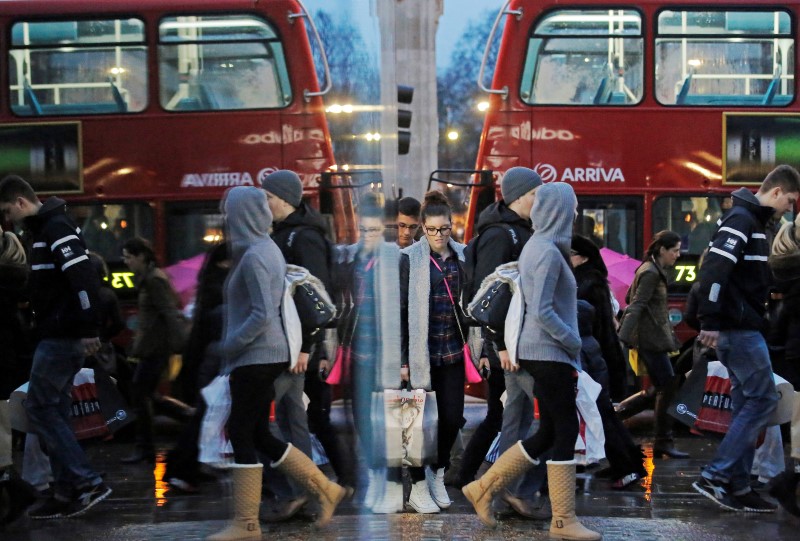LONDON (Reuters) - British consumer spending slowed in June as bad weather added to uncertainty around the June 23 referendum on Britain's membership of the European Union, a survey showed on Tuesday.
There were also fresh signs of pessimism among the country's manufacturers in the run-up to the referendum, but a leading credit card firm said spending rose immediately after the vote.
The British Retail Consortium said spending rose by 0.2 percent last month compared with June of last year, slowing sharply from growth of 1.4 percent in May.
Clothing and footwear were hit as rain dominated the weather. On a 12-month basis, clothing recorded its slowest growth since December 2009 and footwear saw its slowest growth since records began in 2009.
"While the ramifications from the Brexit vote may well affect consumer confidence, retailers will be hoping the long-promised heatwave and potential stay-at-home holidays will be enough to drive shoppers back to the high-streets," David McCorquodale, head of retail at accountancy firm KPMG, which sponsors the survey, said.
On a like-for-like basis, stripping out changes in the amount of retail space open to shoppers over the past 12 months, the BRC said sales fell by 0.5 percent in June versus a year ago, compared with a 0.5 percent increase in May.
Britain's decision to leave the EU is expected to hurt the economy and there have been signs of a sharp hit to confidence among consumers and businesses.
A survey published by the British Chambers of Commerce on Tuesday gave another downbeat picture of the outlook.
The balance of manufacturers who expect turnover to improve fell to its lowest level since the third quarter of 2012 while a similar measure for the services sector remained unchanged at a historically low level, according to the survey which was conducted between May 23 and June 13.
But it wasn't all gloom and doom for retailers.

Consumer spending grew by 3.6 percent in May and June - its strongest growth since January, according to Barclaycard, which processes nearly half of Britain's credit and debt card transactions.
In the week after the referendum, spending grew by 2.1 percent although discretionary spending in pubs and restaurants fell, Barclaycard said.
"While it’s too soon to draw long-term conclusions on how spending and sentiment have been affected by the outcome of the referendum, the early indication is that the majority of consumers avoided a knee-jerk reaction," Paul Lockstone, managing director at Barclaycard said.